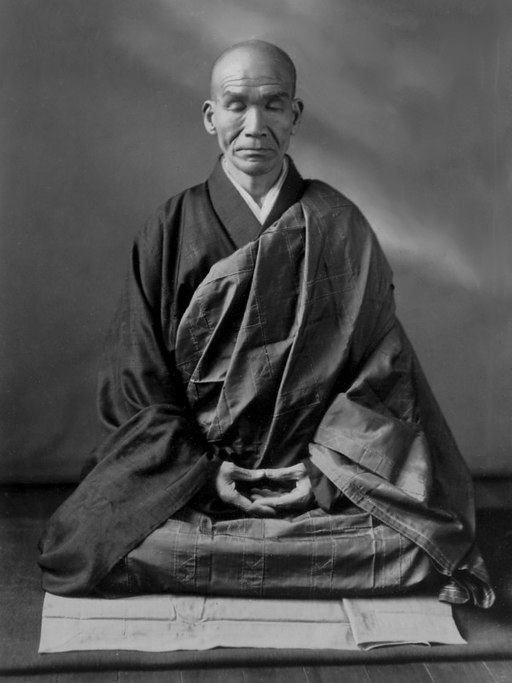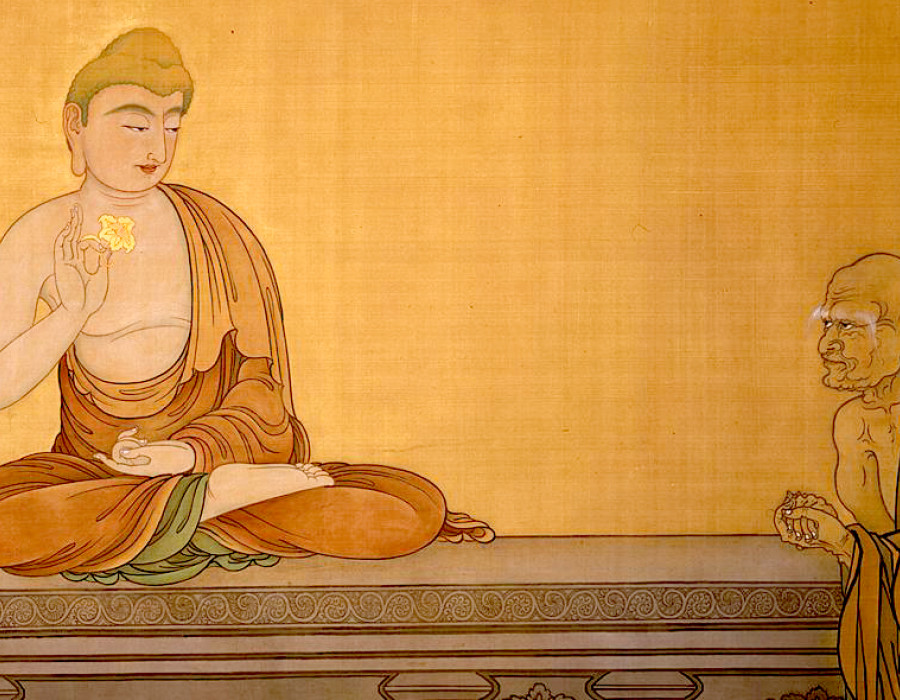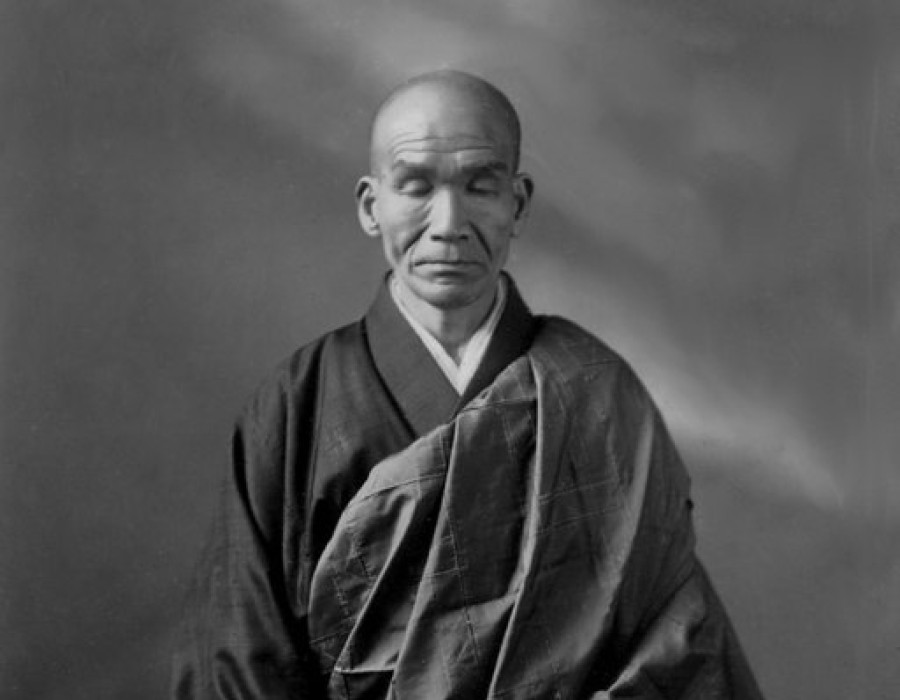
Martin Goodson
The Six Paramitas: 5. Meditation
Exercises in mindfulness
In meditation or dhyana, we find the application of all the previous paramitas.

An image of Kodo Sawaki sitting in zazen meditation
https://commons.wikimedia.org/wiki/File:KodoSawakiZazen.jpg
Our English word ‘meditation’ is used to translate a number of Sanskrit terms that are inter-related, yet distinct.
‘samadhi’ which refers to the meditative state
‘bhavana’ which means the cultivation of mind and heart towards liberation, and
‘dhyana’ the practice of meditation itself.
In our list of six paramitas it is ‘dhyana’ to which the term meditation applies.
And yet, an understanding of all these terms is important when approaching this topic because the first two are very much part of the practice of meditation itself.
Meditation is not exclusive to Buddhism, in fact all religions have their own versions and even within Buddhism there are an exhaustive range of practices and methods. However if we can make a generalisation then it would not be far from the truth to say that Buddhist meditation falls into two main categories.
Meditation to cultivate ‘samadhi’ or one-ness with the object of meditation
Meditation for insight into the teachings and the True Nature of reality
When we start meditation it is the first practice we are given. The most popular object for this meditation is on the breath, on a point of the body involved in the breathing process such as the tip of the nose or the abdomen, or on a silent counting of the out-breaths.
Having set the body up into an alert but relaxed posture the meditation practice is to give ourselves into the object of meditation. Whenever we become distracted and as soon as awareness flashes in of having strayed from the object to give ourselves once more to that object of meditation.
In essence ‘sitting meditation’ or zazen as it is also known, is an application of the principles that we have already covered in the four previous paramita exercises that we apply in our daily life practice.
The skill of giving myself into what at this moment is being done anyway. This moment being the object of meditation in all activities.
Cultivating the discipline to keep up the practice no matter how ‘I’ might be feeling today!
The ability to endure with patience the emotional household when ‘I’ want to ‘not bother’ or when it might be a bit uncomfortable and by so doing develop stamina to keep going with the practice.
A devoted energetic attitude that does not give up but can persist and continually return to the practice.
These preceding paramitas give us our firm foundation for a solid dhyana practice. What comes out of this is a growing awareness of what is referred to in Zen texts as the ‘Heart-Mirror’. This consciousness is a highly prized fruit of dhyana practice. It is marked by qualities of quiet spaciousness. It is a consciousness that is ‘empty’ of any notion of ‘I’, ‘me’ or ‘mine’. But it is far from being nothing at all either! Like a mirror whatever is reflected in it is seen in-the-round far from my usual point of view, with my prejudices and partialities.
It is this consciousness, which the 20th century sage Krishnamurti used to call, ‘choiceless awareness’ that forms the basis for the next level - insight meditation practice.
Because that quiet spacious awareness, empty of my-self is profound and deep it can see the profundity of whatever now falls into it. So at this point a person undergoing training with a mediation teacher will be given certain themes from the Buddha’s teachings in order to gain insight into them.
But this ‘Heart-Mirror’ can also be used to ponder the common and everyday problems that life throws up from time to time. Instead of my usual myriad judgements and opinions it becomes possible to see the matter for what it is and quite often a solution or quiet acceptance appears as a consequence. We will look at this process in more detail in our last paramita ‘Wisdom’.
Text copyright to The Zen Gateway
The Six Paramitas | Martin Goodson
Exercises in Mindfulness











